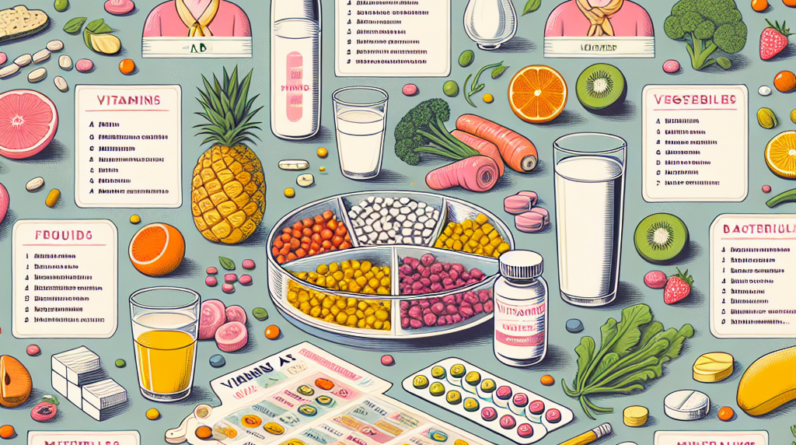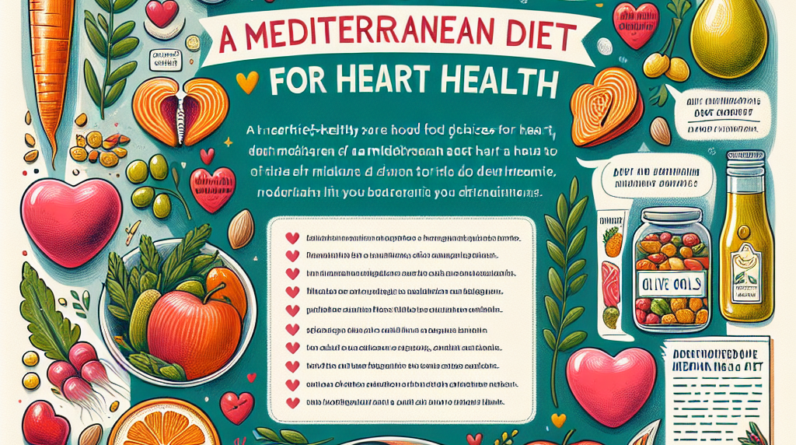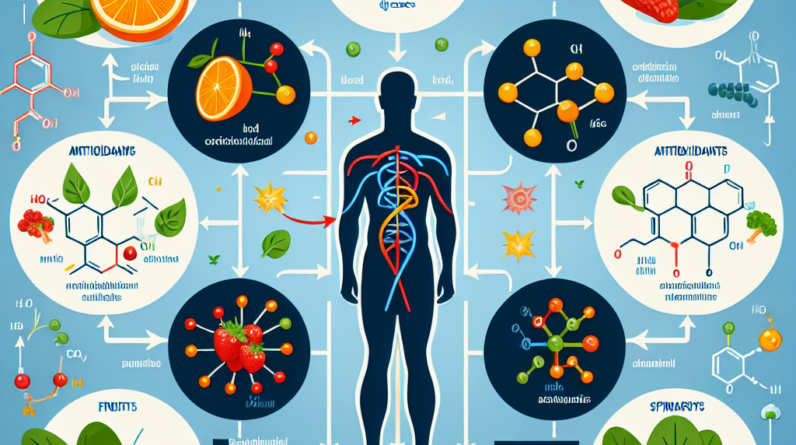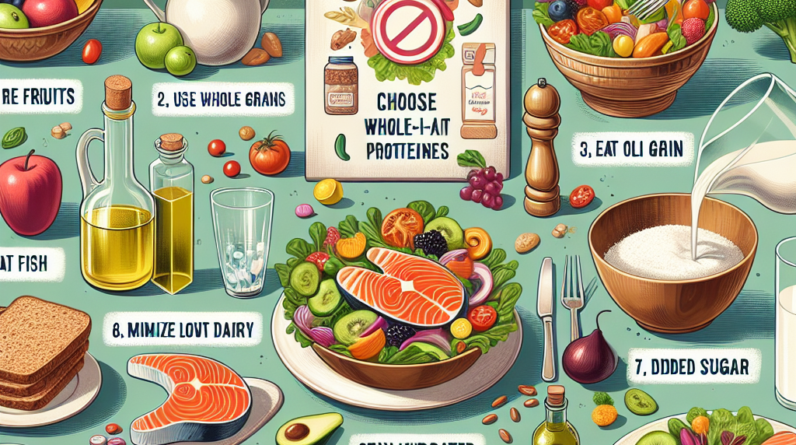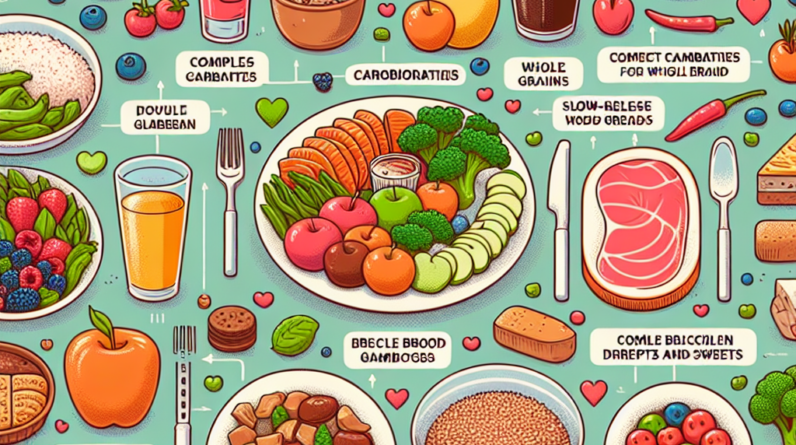
Understanding Carbohydrates
What Are Carbohydrates?
So, let’s kick things off with carbs! If you’ve been navigating the waters of diabetes management, you’ve probably heard all sorts of things about carbohydrates. In reality, carbohydrates are an essential nutrient that our bodies use for energy. They come in various forms—some are beneficial and others, like refined sugars, can spike blood sugar levels. Knowing the difference is crucial.
Get a Huge Discount and Bonus! Try for 90 Days Risk Free
From my experience, focusing on the quality of carbs is key. Whole grains, legumes, fruits, and vegetables are the heroes here. They not only fuel energy but also provide fiber, which is great for digestion and helps keep those blood sugar levels steady. However, I learned the hard way that not all carbs are created equal—so be selective!
Another thing I’ve found helpful is keeping a food journal. Tracking my carb intake and how certain foods affect my blood sugar can help me make better decisions. Carbs can be tricky, but with a little knowledge, they can become our allies rather than foes.
Incorporating Protein
Why Protein Matters?
Protein is often a star player when it comes to building a balanced diet. Not only is it crucial for muscle maintenance, but it also plays a role in blood sugar management. Personally, I’ve noticed that incorporating higher protein options helps me feel fuller for longer, which can prevent those tempting snack attacks.
Good sources of protein can come from both animal and plant foods. Think chicken, fish, legumes, nuts, or dairy. When I cook, I try to make sure my plate includes a source of protein alongside my carbs. It’s a game-changer for stabilizing my energy levels throughout the day.
One thing I always recommend to others is to try and keep your protein intake balanced throughout the day. This helps avoid blood sugar roller coasters and keeps your energy levels consistent. Plus, who doesn’t love a good chicken stir-fry or a hearty bean chili? Yum!
Healthy Fats
Identifying Healthy Fats
When I first shifted my eating habits, I dreaded the idea of fats. The truth, though, is that healthy fats are vital for a balanced diet, especially for those managing diabetes. These fats can help improve heart health and promote satiety. Think avocados, olive oil, nuts, and seeds—these are the good guys!
I’ve learned that incorporating healthy fats not only enhances my meals but also helps with nutrient absorption. For example, adding a little olive oil to my salads or munching on a handful of nuts can be both satisfying and nutritious. It’s all about balance, isn’t it?
But a little caution goes a long way. While we embrace healthy fats, it’s important to keep portion sizes in check. Those lovely calories can add up pretty quickly, so moderation is important. My approach is to aim for variety and to savor every bite!
Get a Huge Discount and Bonus! Try for 90 Days Risk Free
Portion Control
The Importance of Portions
Alright, let’s talk about portion sizes. When I first looked into managing my diet, I didn’t think much about how much I was serving myself. It turns out, portion control is a crucial part of balancing what I eat. And honestly, it’s easier than it sounds!
Good Health Solution is Easier Than Most People Think!
Take a Look for Yourself!
One of my go-to strategies is using smaller plates. Seriously, it’s a simple psychological trick that helps me feel like I’m eating more than I actually am! Plus, I focus on filling my plate with colorful vegetables to bulk up my meals without packing on too many calories.
Need a Serious Energy BOOST? Huge Discount Try for 90 Days Risk Free
Mindful eating is another practice I swear by. Slowing down and taking the time to enjoy each bite makes a huge difference in how I perceive hunger and fullness. It’s about tuning into my body’s cues—sometimes just putting the fork down is all I need! Put bluntly, it’s an art, but totally worth it.
Meal Planning and Preparation
Why Meal Prep Works
Okay, let’s wrap this up with meal planning. Initially, I found this daunting, but creating a meal plan has made my life so much easier. When I take a little time each week to prepare, grocery shopping becomes a breeze, and meal decisions are off the table.
My process includes taking stock of what I already have in my pantry—nothing worse than letting good food go to waste! Then, I map out some balanced meals, making sure they fit the carb, protein, and fat ratio I’m aiming for. Plus, who doesn’t love a little variety during the week?
And trust me, keeping it flexible is key. Life can get busy, and some weeks are tougher than others. So, having some go-to recipes for those hectic days means I’m less likely to reach for unhealthy options. Meal prepping is like giving yourself a hug—ensuring that you’re covered no matter what life throws at you!
FAQs
1. What are the best sources of carbohydrates for someone with diabetes?
Great question! The best sources include whole grains like brown rice and quinoa, legumes, fruits, and non-starchy vegetables. They provide fiber and nutrients that help manage blood sugar levels effectively.
2. How can I ensure I’m eating enough protein?
To make sure you’re getting enough protein, include a source of protein in every meal. Options like lean meats, beans, tofu, nuts, and dairy can help you meet your daily needs. It’s all about balance!
3. Are all fats unhealthy for diabetes management?
Nope! Not all fats are created equal. Focus on healthy fats from plant oils, avocados, and nuts, as opposed to saturated fats found in fried foods and many processed items. Healthy fats can support heart health and help keep you feeling satisfied.
4. How can I practice portion control?
Practicing portion control can include using smaller plates, measuring out servings, and taking time to chew and savor your food. It’s about listening to your body’s hunger cues!
5. Is meal planning necessary for diabetes management?
While it’s not strictly necessary, meal planning can simplify your food choices and help you stay on track with your dietary goals. It makes grocery shopping easier and helps prevent last-minute unhealthy decisions.



